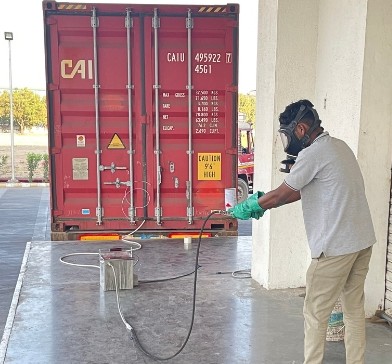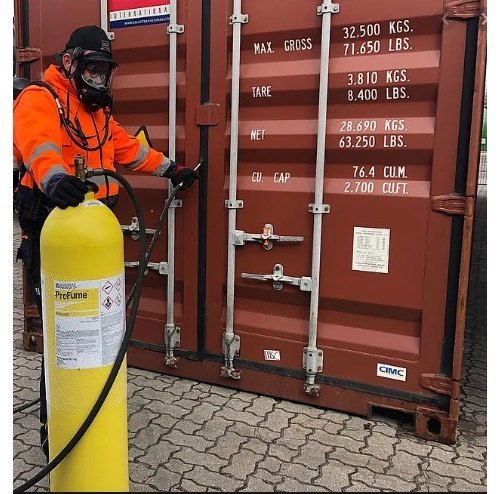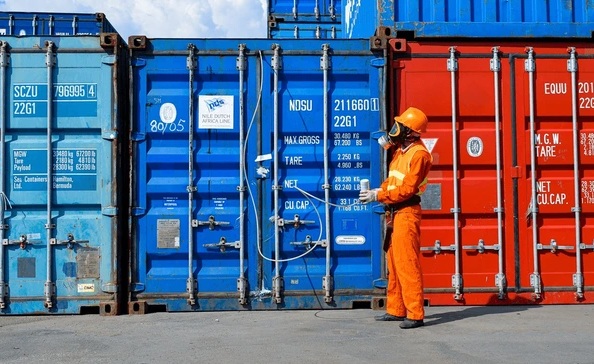


Container Fumigation in Singapore
Singapore’s strategic role as a global logistics and shipping hub makes container fumigation an essential service to ensure safe and pest-free trade across borders. Container fumigation is the process of introducing approved fumigants into sealed shipping containers to eliminate pests that may pose threats to goods, supply chains, and biosecurity.
This treatment is especially critical for quarantine compliance, phytosanitary certification, and pest risk management in both import and export operations.
When Is Container Fumigation Needed?
- Before export, to meet the quarantine requirements of destination countries
- Upon import, when live pest activity is detected or suspected
- For ISPM 15 compliance, particularly for goods packed with wood-packaging materials; wooden pallets or dunnage
- As a preventive measure, especially for food, agricultural, and high-value shipments
Types of Goods Commonly Fumigated
- Agricultural commodities (e.g., rice, corn, coffee beans)
- Raw materials like cocoa, cotton, and tobacco
- Processed food and dry goods
- Wood products and packaging
- Machinery and construction materials stored in containers
Common Fumigants Used
- Phosphine: Effective for most organic commodities and widely accepted globally for in-transit treatments.
- Methyl Bromide: Often used for Quarantine and Pre-Shipment (QPS) fumigation, especially where required by the importing country’s phytosanitary regulations.
Why Choose Professional Container Fumigation?
- Ensures international regulatory compliance
- Reduces the risk of cargo rejection or quarantine delays
- Prevents pest infestation and contamination of goods
- Protects brand reputation and product integrity
